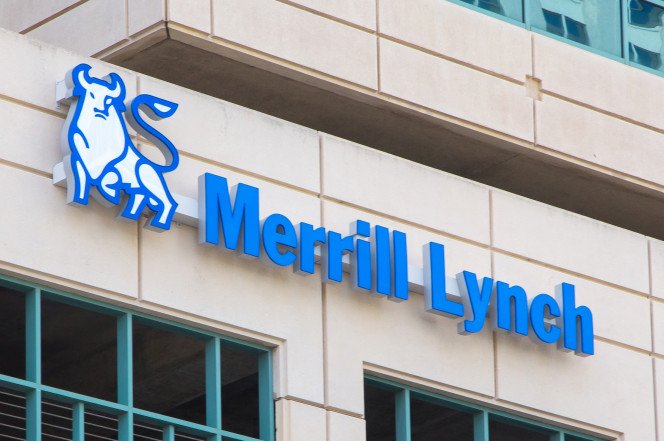
Merrill Lynch last week became the latest — and largest — Wall Street bank to say no to bitcoin.
The brokerage arm of Bank of America said its 17,000 financial advisers can’t sell the cryptocurrency to its clients, even though every Joe Lunchpail clamors for it. After a more than 2,000 percent gain last year, it’s the hottest thing to hit Wall Street since Amazon stock took off.
Merrill’s thundering herd couldn’t even sell one of the most popular gateway investments to bitcoin:, the Grayscale Bitcoin Investment Trust Fund.
I say that is a good thing.
Sure, bitcoin is the flavor of the year, soaring from $970 to $20,000 in 2017. But it also traded at under $14,000 just six days after bubbling above $20,000.
It’s unregulated and volatile — something Main Street investors should avoid.
UBS, which has a much smaller army of advisers, already bars its team from pitching bitcoin to clients. And JPMorgan Chase Chief Executive Jamie Dimon has called the crypto-asset a fraud.
Though bitcoin is likely to evolve into a less volatile asset, the craze today reminds me of the 1990s’ know-it-all yuppie tech stock fad. Remember, people were in search of and often buying startup tech stocks that offered little more than a hope, a prayer and a crazy story about how they were going to take over the world.
So many of those tech darlings turned out to be dogs — and took those investors down with them.
When bitcoin’s value falls again — and it tumbled 30 percent in less than a week last month — mom-and-pop investors will get burned — and then get angry.
Merrill’s move to keep its millions of small-time investors away from the nascent asset is smart and will ensure those clients won’t have sleepless nights..
Will bitcoin become the future of digital currency? Maybe. Are digital transactions and encrypted currencies the future? Most definitely.
But let’s wait for them to become less volatile before we invite everyone to the party.
